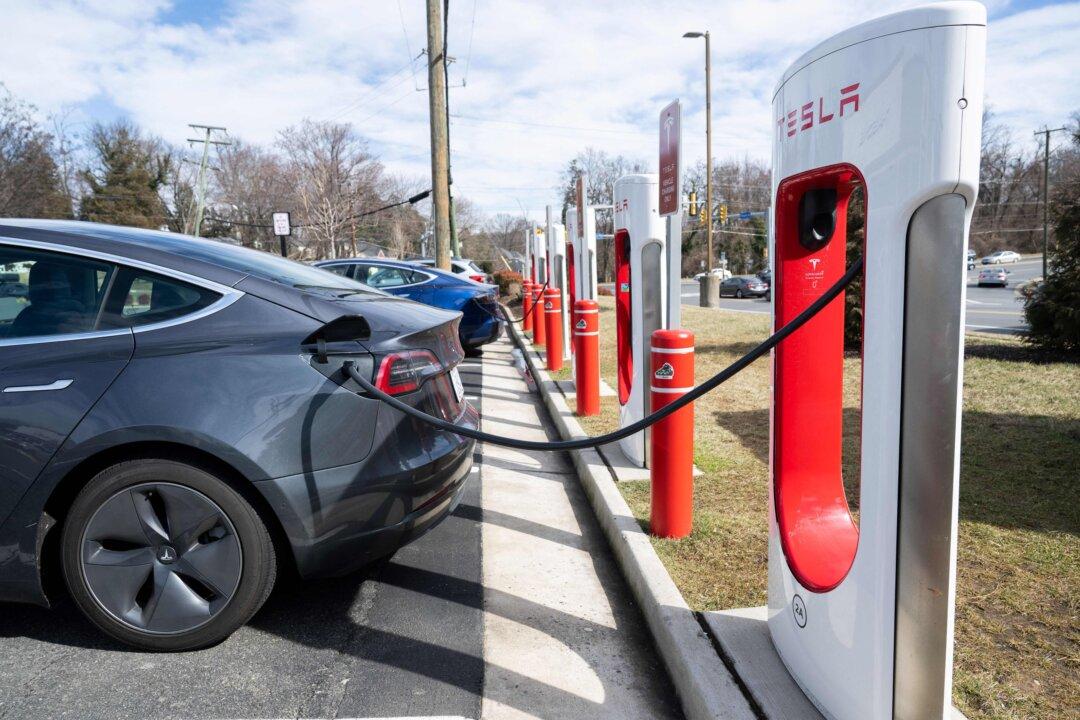Tesla won a contract with the state of Texas among a series of victories that will likely pave the way in making the electric vehicle (EV) maker’s charging technology the dominant standard for powering electric vehicles in the United States.
Texas announced on June 20 that it would require EV charging companies to include both Tesla’s North American Charging Standard (NACS) and the federally recognized Combined Charging System (CCS) if they choose to participate in a state program to electrify its highways using federal subsidies, reported Reuters in an exclusive.
The Texas Department of Transportation (DOT) said that that it would require fast chargers for EVs to have at least one CCS and one NACS connection port.Reuters reported the same day that electric pickup truck manufacturer Rivian was backing Tesla and that privately owned charger maker BTC Power would also support its standard.
This follows recent announcements by General Motors and Ford to use Tesla charging technology in its EVs.
Automakers are increasingly ignoring efforts by the Biden administration to make CCS the nationwide charging standard.
The government is offering $7.5 billion in taxpayers dollars to speed the deployment of EV chargers across the country.Tesla’s Charging Standard Quickly Becoming Dominant in North America
Since the decisions by GM and Ford, the top U.S. charging companies like ChargePoint and EVgo said they would add the same standard to their chargers in North America.Rivian, like GM and Ford, said that its customers will be able to access 12,000 Tesla Superchargers with adapters in North America as early as spring 2024.
The company will make a Tesla-style charging port standard on its vehicles starting in 2025.
“We prefer the Tesla connector, which is more compact, and we also see it as an opportunity to leverage the charging infrastructure that they built,” Rivian CEO RJ Scaringe told Reuters in an interview.
Texas, which is home to Tesla’s headquarters and its latest EV manufacturing complex, is the first state to make the company’s charging technology the state standard.
As one of the largest states in the country, this win will give a boost to CEO Elon Musk’s vision of making his plug the national charging standard.
“The decision by Ford, GM, and now Rivian to adopt NACS changed requirements for Phase 1” of the rollout, the Texas DOT told Reuters in an email.
Texas’s mandate will put massive pressure on other states to adopt Tesla’s NACS, Lew Cox, director of Business Development at MD7, a firm which helps companies deploy chargers, told Reuters.
“It’ll effectively make an NACS the new charging standard,” Cox said.
Tesla has approximately 2,000 Supercharger locations and more than 21,000 Supercharger stalls across the nation.Tesla’s Superchargers already account for about 60 percent of the total fast chargers available in the United States, according to the U.S. Department of Energy.





